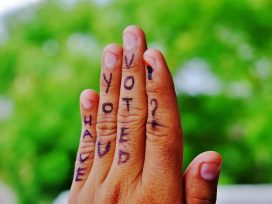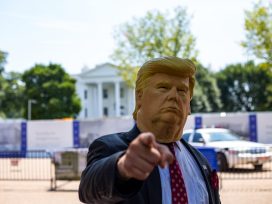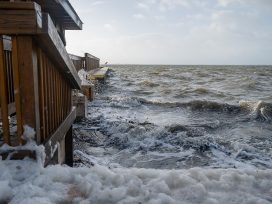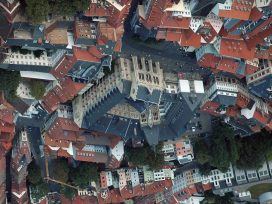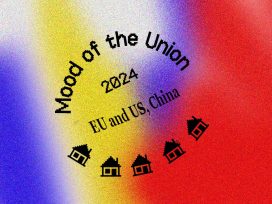In 1997 the circle of right-wing intellectuals from the “Slovenian Spring”, for the most part associated with Nova Revija, signed an appeal called “The hour of European truth for Slovenia”, and considerably later, an initiative called “Something must be done”. Their long-held political aspirations and expectations were fulfilled in 2004, when the leader of the right, Janez Jansa, came to power for the first time. Jansa was a symbol of Slovenia’s independence and the undisputed leader for those who considered communism and its political successors the country’s greatest evils. In the meantime, Slovenia had joined the European Union and Euro-Atlantic alliances, becoming an integral part and equal member of the great family of European nations. For the intellectual right, which could take no direct credit for Slovenia’s entry into the EU and NATO, since this took place under the previous government of the Liberal Democrats, this was probably an infinite relief. To everyone else, it was most likely just a step in the process of European integration.
But it turned out that Slovenia’s integration with Europe was not just a wish fulfilled, but also meant that Slovenia would be required to act in accordance with European standards. When Janez Jansa as prime minister took over the six-month rotating EU presidency in the first half of this year, it seemed that Slovenia was accorded the greatest possible honours, and that it could dictate and direct “the European truth”, with Mr. Jansa as its temporary watchmaker. But the beginning of the presidency coincided with a petition by Slovenian journalists decrying the country’s lack of press freedom, signed by 571 journalists, or a fourth of all those active. Nothing happened here at home, apart from the demonization of the initiators of the petition: the politicians in power attacked the journalists using all possible means of discrediting them, when all they had done was tell the truth. At the beginning of Slovenia’s presidency a message along the lines of “the Slovenian truth for Europe” went out to the world, that Mr. Jansa was applying political pressure on journalists and practicing censorship of the media, and the repercussions of this overshadowed the news itself of the Slovenian presidency. In the autumn of 2008, more than a month after the conclusion of the presidency, we are at a point where we read in the world media an investigative report by a Finnish journalist, citing evidence that Mr. Jansa may have accepted bribes in the government’s purchase of armoured vehicles from the Finnish company Patria. Media reports from abroad abound. And so it happens that the only two truly notable events to be found, if we leaf through all the reports on Slovenia in the European media over the past year, are associated with the Slovenian prime minister, and both take form of accusations: Mr. Jansa intimidates the media, and Mr. Jansa accepts bribes.
It was no surprise when, due to the approaching parliamentary elections, a number of hypotheses arose as to whether this was a planned conspiracy in the first as well as the second instance. If the prime minister, in the case of accusations from the petition, had to deal with domestic journalists, he now finds himself having to deal with foreign ones. The documentary by the Finnish journalist bore the title “The Truth about Patria”, and the Slovenian government is sending out dispatches which report some other particular truth to Europe and the world – a correction of sorts by the government, intended for broadcast on Finnish public television, is entitled “The Truth about Patria, Part 2”. Part 2? The government has apparently become involved in a metaphysical story, the truth has been fragmented and fissured, it has become itemized and is the subject of a continuation in a popular series. And what should truly concern us is precisely this arbitrariness of fragmentation, which is hidden in the gap between the European and the domestic view – the Finnish journalist has become an unreliable source, and Finland’s national television as well. The godfathers and true authors of the programme were sought, and the ruling party found them everywhere; trumped up explanations for who was the true scriptwriter of the documentary were piled on and they all had a common denominator: responsibility for the programme could be found anywhere and everywhere – just not with the Finnish journalist who produced it. And although it was the prime minister who was personally accused, they rushed to convince us that the reputation of Slovenia and her citizens had suffered.
Any discourse about truth which comes from politics is of course already pathetic; the reasons for this can be many. Some years ago, the prime minister and later president of Slovenia, the late Dr. Janez Drnovsek, called one of his books My truth. Such titles would be understandable if it were about the confession of guilt by the accused, but in ordinary circumstances it sounds idiotic, in fact, it indicates a feeling of insecurity and being threatened, and is an attempt at swaying the feelings of the Other to whom we ascribe the role of arbitrator and somehow trust in. This is what the leaders of the intellectual right had in mind first, then the signatories of the journalists’ petition, and finally now the government. All of whom somehow warn us about the “Slovenian truth for Europe” and in this way acknowledge the gap which has arisen between the two. What, then, is this “European truth” and this “Slovenian truth” – of course first recognizing the fact that the latter has been claimed for its own by the Slovenian authorities and is not necessarily that of all citizens? And what is the tension between the two? The moral of the story is the following: the effort to persuade the Other, who supposedly realizes the “true” truth, is already a mistaken step. Actually it’s a step in which the truth is already being disclosed, as Hegel concluded: the path to the truth is the truth itself. The manner in which they try to assert their truth has acquired the following contours: the Slovenian government rushed to instruct the Finnish media and Finnish politicians and investigative bodies as to what is true and what is not, what is professional, what is democratic. Throughout, it received a sharp reprimand and a lesson, for which foreign newspapers, such as Berlin’s die tageszeitung, rebuked Slovenia for reacting in the old Yugoslav tradition and suggested that it finally wake up. As the German newspaper reminded us, “We’re living in the EU now, Slovenia!”
“The hour of European truth for Slovenia” received its grounding in the form of a warning about our lack of maturity since we don’t understand the autonomy of the media, we’re not cooperating with Finnish investigators, and we childishly exacerbate political relations. The national metaphysics in which discussion the government has become entangled is a kind of offended imposition of its own truth, since supposedly they have been the victims of some sort of conspiracy of global dimensions. And because no one understands them they are not going to care. If Spomenka Hribar once said that the weapons affair of fifteen years ago was the mother of all affairs, it could happen that the Patria affair will be their father. And not just because of the metaphor – the Latin word patria meaning fatherland. But also because the child is the same in each case.
